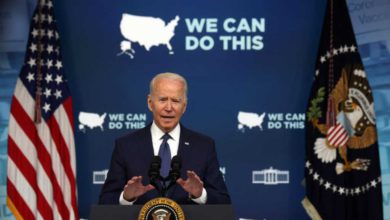Dr. Marc Siegel
Former President Jimmy Carter is 98 years old as he enters hospice care at home after a “series of short hospital stays,” according to the Carter Center. He has had brain bleeding from recent falls and has just undergone a procedure to relieve pressure on his brain.
Does his condition warrant hospice? We don’t know, but as always we must respect his decision to do so.
A one-term president, Carter was known best for the Camp David Accords agreement between Egypt and Israel in the late 1970s as well as giving the nation of Panama control of the Panama Canal. His greatest failures were his wavering and ineffective leadership when dealing with Iran abroad (including the failed hostage rescue) while presiding over a period of “stagflation” in the United States.
Post-presidency, he has been known for his personal diplomacy and emphasis on human rights and peaceful solutions, leading to his receiving the 2002 Nobel Peace Prize. More recently, he was awarded the 2020 Walter and Leonore Annenberg Award for Excellence in Diplomacy.
But I believe his greatest accomplishments have been in the arena of health and welfare.
Breaking grounds away from the White House
Since 1984, he and his wife, Rosalynn Carter, have been building and also advocating and raising funds for affordable housing with Habitat for Humanity. By 2020, they had worked alongside more than 100,000 volunteers to build, renovate and repair close to 5,000 homes.
Opinions in your inbox:Get exclusive access to our columnists and the best of our columns every day
We need to do better:I did all the 'right' things to avoid breast cancer. Our medical system fell short.
For me, as a practicing physician, I was most inspired by the courage he showed in his fight against cancer. Diagnosed with melanoma that had spread to his liver and brain in 2015, he received a new kind of treatment (immunotherapy) along with radiation therapy and was declared cancer free by that December, a nearly miraculous response.
In fact, it was Carter’s dramatic cure that convinced patients around the United States to hope that a deadly cancer such as melanoma could now be treated and to sign up for immunotherapy.

Since 1986, efforts by the Carter Center against Guinea worm disease, which causes skin, joint and systemic infection, has led to near eradication, from 3.5 million cases worldwide to only 13 last year.
Carter is now groundbreaking again on the medical front for his decision to enter hospice care.
Whatever the exact medical reason, his decision sends a message to Americans that hospice is a reasonable choice to make when you reach a point where you can no longer enjoy quality of life.
Hopefully, Carter will also characteristically use it as an opportunity to educate the public. Hospice care is intended not to shorten life but rather to provide services to improve quality of life through the advanced stages of illness. Palliative care (hospice) is designed to help a patient successfully manage pain and discomfort.
Why is health care so inaccessible?:It only got easy when my dad was dying
I remember when Carter took the reins from President Gerald Ford, who was himself a bandage to Richard Nixon’s blemish. We had a lot of optimism then that Carter could help to heal the wounds of Watergate.
Even if he didn’t succeed while in the Oval Office, in his post-presidency he has certainly held his head high and represented us in a regal fashion.
Jimmy Carter said, “I have one life and one chance to make it count for something.” By any criteria, he has accomplished that. A true lion at dusk.
Dr. Marc Siegel, a member of USA TODAY's Board of Contributors and a Fox News medical correspondent, is a professor of medicine and medical director of Doctor Radio at NYU Langone Health. His latest book, "COVID: the Politics of Fear and the Power of Science," was published in 2022. Follow him on Twitter: @DrMarcSiegel
More from Dr. Marc Siegel:
Should my kid get the COVID vaccine? As a doctor, I strongly recommend it.
Dr. Anthony Fauci knows he's made 'a lot of enemies.' Here's what I know about him.
Treating HIV taught us about inclusive care. Now monkeypox is testing what we learned.









